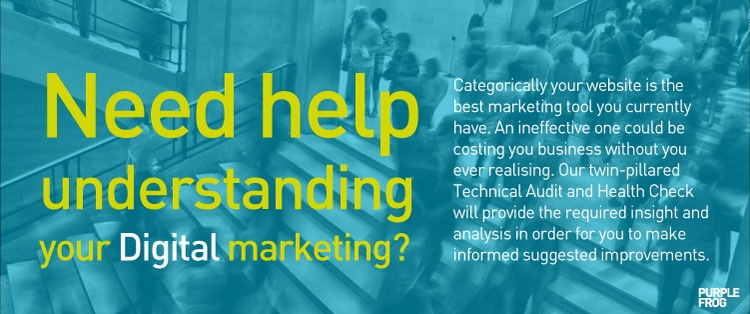Programmatic advertising: "don't worry, the machines have got this..."

When reading an article by martechtoday.com earlier this week, they made a very astute observation that no matter whether you are new to programmatic advertising, or have been working in digital marketing for years, it is notoriously difficult to find a definition that could be explained to a novice. What is programmatic marketing, and what does it mean for the future of advertisers, brands and ads?
Fishing through various articles, it becomes clear that many explanations get "bogged down in jargon" (something of a issue in the industry generally).
Here, for example, are 4 definitions of programmatic advertising:
"Programmatic ad buying typically refers to the use of software to purchase digital advertising, as opposed to the traditional process that involves RFPs, human negotiations and manual insertion orders."
"Programmatic buying isn't just efficient — it leads to more sophisticated and targeted campaigns. Get the latest research and case studies on real-time bidding and data-driven creative."
"Programmatic advertising helps automate the decision-making process of media buying by targeting specific audiences and demographics."
"It’s the use of software (or programs) to purchase digital advertising space, buying specific audiences by using lots of data to identify the right ad, the right person, the right time."
Now in fairness at least one of these gets the point across simply, and although we can established that programmatic advertising is basically, automating the purchase of digital ad space with computers using various data to determine which ads are shown and how much is paid to display them, there is still ambiguity surrounding exactly how programmatic works in reality.
Programmatic allows marketers to make data-driven decisions on which ads are displayed, to which people, when, where and on which device. This has real world benefits meaning that specific ads are shown only to specific people. Or, different ads to different people.
This is often seen and sold as a more efficient way of displaying ads, minimising the risk of 'wasting' money showing ads to people who don't want to see them. The move towards programmatic advertising is allowing advertisers and brands to work on a more personal basis, delivering the right ad to a consumer who will be interested in it.
As Kenneth Kulbok from LinkedIn Programmatic notes, programmatic is "conducting media transactions on an impression-by-impression basis" rather than in one block.
In Reality...
The real world application of programmatic is best described by marketingweek.com:
"Rather than buying a million impressions on The Telegraph in one go and committing to that over a period of time, a brand can buy a million impressions but split across multiple publishers targeting a particular audience segment."
This means you can have multiple ads and, crucially, messages across a campaign that only individually target the specific audience segment those ads were designed for. Essentially allowing marketers to have far more targeted creative input in their ads.
With less time being spent thinking about where to target and who, (as you know, the machines have got this), advertisers can spend more time thinking about how best convert consumers with an ad tailored to a specific segment.
This approach frees the human to think "creatively about the customer", freeing up budget to pursue a far more customer-centric way of advertising your personalised messages.
Wow everything's just so great!
There is of course a trade off. As a great deal of this process is automated, advertisers run the risk of running ads next to inappropriate content.
This has been newsworthy recently after it immerged that Google and YouTube had on occasion been running ads next to extremist content, leading - naturally - to some high-profile brands pulling their ads from these platforms.
But as JJ Marketing's Barney Sayce notes, responsibility is shared by all parties: negative keyword targeting for certain content; ad vendors blacklisting sites; and agencies manually reviewing ad placements should all be part of the programmatic process.
Programmatic, it should also be said, isn't for everyone. IAB UK's Dee Frew comments that "there will always be a niche website or brand that doesn’t want automated decisions" but larger, mass-market brands should undoubtedly look into investing in well-strategised, programmatic advertising.
More blog posts

Educate and Inform. Don't Interrupt
People today buy differently than they did 10 years ago. The modern buyer’s journey often starts with Google now, rather than...
7 Benefits of Social Media For Business
Once upon a time Social Media was only seen as a fad, something that only the teends we in to and would soon pass. It was never...







